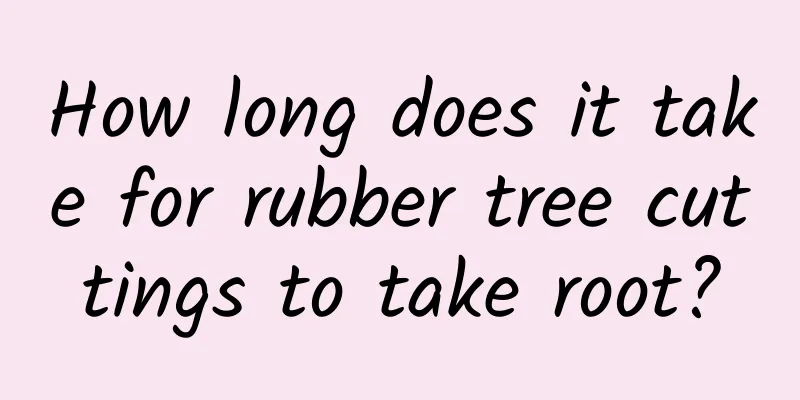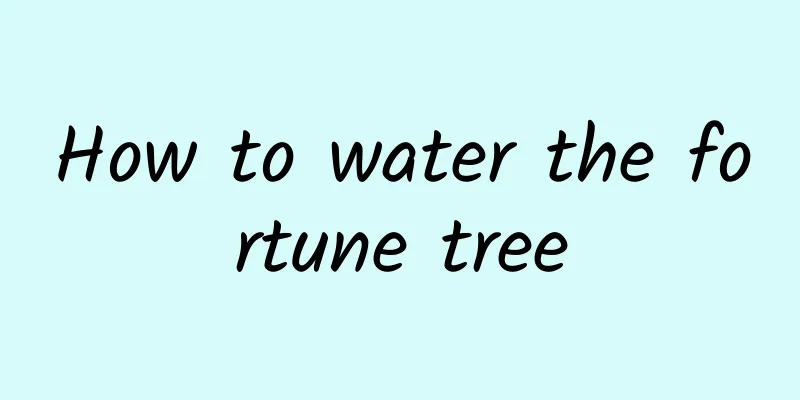How long does it take for rubber tree cuttings to take root?

Rubber tree cutting rooting timeIt is best to propagate rubber trees by cuttings from May to June. The room temperature should be kept at 18-25℃. If the temperature exceeds 30℃, it will be difficult for the trees to take root. After propagating the rubber trees by cuttings, it usually takes about 7-15 days for the trees to take root. If the environment is suitable, they will take root in a week. Rubber tree cuttings can be used to check whether the branches are growing normally. If the branches are growing slowly and sprouting leaves, it means that they have taken root and survived. If the new leaves are tender red and look very shiny, it means that their growth is very good. Rubber tree cutting rooting method1. Cutting leaves: You can use a whole leaf or just half a leaf for cuttings of the rubber tree. Choose the strong and thick leaves in the middle as the cutting material. The scissors used to trim the rubber tree leaves should be sharp and need to be disinfected in advance before use. 2. Maintenance: Insert the leaves obliquely about 3 cm into loose and fertile soil, water once, and keep them in a warm and shaded place. Ventilate frequently and avoid direct sunlight. Keep the soil moist after cuttings. It will take about 30-45 days for the roots to take root. Rubber tree cutting management1. After the rubber tree has grown roots, it can be exposed to the sun. The cuttings of the rubber tree leaves should not be exposed to the sun. They should be placed in a bright and ventilated place for maintenance. They will easily take root and sprout. If the rubber tree leaves are placed in a dimly lit place, it may not be easy to take root or sprout. 2. It is best to wait until the rubber tree has taken root before applying fertilizer. Cake fertilizer or manure can be used as base fertilizer during the growth period, and phosphorus and potassium fertilizer or organic fertilizer can be used as topdressing. Rubber trees generally do not need to be fertilized after cuttings, because they still have no root system after cuttings. Generally, the nutrients in the soil can maintain their normal growth, so no fertilization is needed. 3. The rubber tree does not need to be watered after cuttings. Just keep the soil moist after the cuttings are completed. If you water too much, it will easily cause water accumulation and cause the cuttings to rot. After cuttings, generally in the morning and evening, just use a spray bottle to evenly spray it with water to keep it moist. |
<<: How long does it take for Podocarpus cuttings to take root?
>>: How long does it take for Milan flowers to take root?
Recommend
Pests and control methods of Gloxinia
Gloxinia pests: Thrips symptom Thrips are a commo...
How to water osmanthus during flowering period, and management matters during osmanthus flowering period
1. Watering method The watering methods during th...
What to do if the peace tree is frozen
1. Move to a warm place It likes warmth. When the...
Cultivation methods and precautions of Jianlan
Pot soil requirements Growing orchids requires si...
How to prune Christmas cactus?
Christmas cactus, with its diverse colors and blo...
Ginseng planting conditions and methods
Ginseng , scientifically known as ground ginseng,...
How to grow Phoenix bamboo more vigorously
1. Suitable substrate Choosing a suitable substra...
Is garlic a shade or sun-loving plant?
Does garlic prefer shade or sun? Garlic is a sun-...
How to keep the fortune tree in the house through the winter? Can it be watered with ferrous sulfate water?
1. How to keep them at home during the winter 1. ...
Classification of plum blossom varieties
Plum blossoms by variety According to the branche...
How to breed drug addict grass
Seeding method If you want to own a youthful and ...
Cucumber high yield fertilization method
In recent years, cucumber cultivation has perform...
The difference between golden thread vine and silver thread vine
Morphological differences Golden thread vine: Its...
Purslane tree cultivation methods and precautions
Purslane trees are very easy to grow and grow ver...
Is it good to use rice water to water flowers? The correct way to water flowers with rice water (experimental report)
Is it okay to use rice water to water flowers? Ri...









